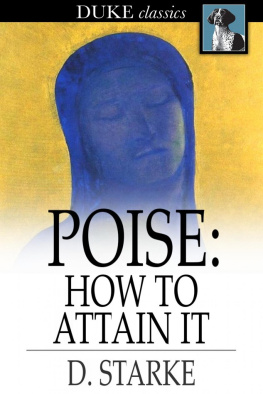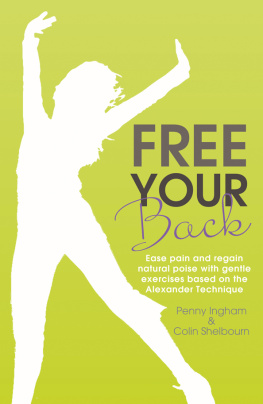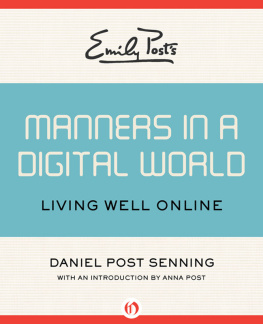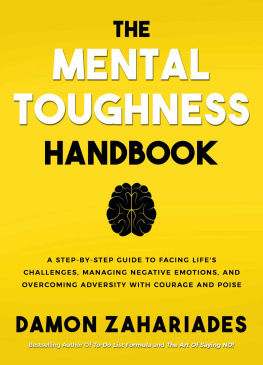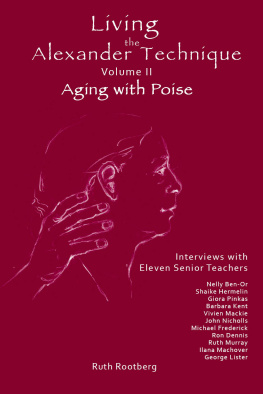D. Starke - Poise: How to Attain it
Here you can read online D. Starke - Poise: How to Attain it full text of the book (entire story) in english for free. Download pdf and epub, get meaning, cover and reviews about this ebook. publisher: Duke Classics, genre: Science. Description of the work, (preface) as well as reviews are available. Best literature library LitArk.com created for fans of good reading and offers a wide selection of genres:
Romance novel
Science fiction
Adventure
Detective
Science
History
Home and family
Prose
Art
Politics
Computer
Non-fiction
Religion
Business
Children
Humor
Choose a favorite category and find really read worthwhile books. Enjoy immersion in the world of imagination, feel the emotions of the characters or learn something new for yourself, make an fascinating discovery.
Poise: How to Attain it: summary, description and annotation
We offer to read an annotation, description, summary or preface (depends on what the author of the book "Poise: How to Attain it" wrote himself). If you haven't found the necessary information about the book — write in the comments, we will try to find it.
We often look upon poised and polished individuals as possessing some inborn trait that allows them to sail through any situation with grace and ease. But in truth, poise can be consciously cultivated, just like any other good habit. In this guide, the author sets forth a series of simple and easy-to-follow instructions that will have you brimming with poise, charm, and self-confidence in no time at all.
Poise: How to Attain it — read online for free the complete book (whole text) full work
Below is the text of the book, divided by pages. System saving the place of the last page read, allows you to conveniently read the book "Poise: How to Attain it" online for free, without having to search again every time where you left off. Put a bookmark, and you can go to the page where you finished reading at any time.
Font size:
Interval:
Bookmark:

From a 1916 edition
ISBN 978-1-62011-436-0
Duke Classics
2012 Duke Classics and its licensors. All rights reserved.
While every effort has been used to ensure the accuracy and reliability of the information contained in this edition, Duke Classics does not assume liability or responsibility for any errors or omissions in this book. Duke Classics does not accept responsibility for loss suffered as a result of reliance upon the accuracy or currency of information contained in this book.
"POISE IS A POWER DERIVED FROM THE MASTERY OF SELF"
All efforts directed toward the correcting of temperamental or mentalblemishes or defects and nervous conditions are of benefit to humanity.In producing this book the Author's purpose was to help mankind toovercome these weaknesses, which are a serious impediment to mentaldevelopment, and hinder personal advancement and general progress. Theaim of the Publishers in issuing this translation is to put into thehands of those who wish to overcome their failings, become masters ofthemselves, and command the attention and respect of others, a work thathas been thoroughly tested abroad and one that will be found ofexceptional service in attaining the end in viewthe securing of aperfect balance.
This book is written in two parts. The first points to the need of Poisein daily life, indicates the obstacles to be overcome, and discusses theeffects of Poise on personal efficiency. The second instructs the readerhow to secure that evenness of temperament which is the chiefcharacteristic of Poise. It includes, in addition, a series of practicalphysical exercises to be used in acquiring Poise.
If such a work as this is to do good, if the reader really wishes tobenefit by the advice that it gives him, it must be read thoughtfullyand diligently, not fitfully and forgetfully, and the reader moststeadfastly keep before him the maxim of the Author"Poise is a powerderived from the Mastery of Self."
THE PUBLISHERS.
Lack of poise has always been an obstacle to those who are imbued withthe desire to succeed.
In every age the awkwardness born of timidity has served to keep backthose who suffered from it, but this defect has never been so great adrawback as in the life of to-day.
The celebrated phrase of the ancient Roman writer who said, "Fortunesmiles on the brave," could very well serve as our motto nowadays, withthis slight alteration: "Fortune smiles on those who are possest ofpoise."
At this point let us attempt an exact definition of poise.
It is a quality which enables us to judge of our own value, and which,in revealing to us the knowledge of the things of which we are reallycapable, gives us at the same time the desire to accomplish them.
It is not a quality wholly simple. On the contrary, it is a composite ofmany others all of which take part in the molding of that totality whichbears the name of poise.
It may be well to pass in review the principal qualities of which it iscomposed, that one may characterize as follows:
Will.
Reason.
Knowledge of one's own value.
Correctness of judgment.
Sincerity toward oneself.
The power of resisting the appeals of self-love.
Contempt of adverse criticism.
Pride that is free from vanity.
A definite and clearly conceived ambition.
Will, as is well known, is the pivot of all our resolutions, whether thequestion for the moment be how to form them or how to keep them whenformed.
A man without will-power is a straw, blown about by every wind andcarried, whether he will or no, into situations in which he has no validreason for finding himself.
Without the will-power which enables us to take a firm hold of ourselvesand to get a grip upon our impressions, they will remain vague andnebulous without presenting to us characters of sufficient definitenessto enable us to direct them readily into the proper channels.
It is will-power which gives us the force to maintain a resolution whichwill lead us to the hoped-for goal of success.
It is will-power also which enables us to correct the faults which standin the way of the acquiring of poise.
We are not now speaking of those idle fancies which are no more thanmanifestations of nervousness. We have in mind rather that controlledand enduring purpose which arms the heart against the assaults of theemotions by giving it the strength to overcome them.
There are many cases even in which will-power has led to their entiresuppression.
This happens more particularly in the case of those artificial emotionsthat the man of resolution ignores completely, but which cause agony tothe timid who do not know how to escape them, and exaggerate them toexcess.
This abnormal development of their personalities is the peculiarity ofthe timid, which their fitful efforts of will only heighten, alienatingfrom them the sympathy which might be of assistance to them.
They take refuge in a species of mischievous and fruitless activity,leaving the field open to the development of all sorts of imaginary illsthat argument does not serve to combat.
Their ego, whose importance is in no way counterbalanced by theirappreciation of the friends they keep at a distance, fills their entireexistence to such an extent that they have no doubt whatever that, whenthey are in public, every eye is, of necessity, fixt upon them.
Their negative will leaves them at the mercy of every sort of emotion,which, in arousing in them the necessity of a reaction they feelthemselves powerless to realize, reduces them to a state of inferioritythat, when it becomes known, is the source of grave embarrassment tothem.
The power of will which sustains those who wish to acquire the habit ofpoise is, then, the capacity to accomplish acts solely because one hasthe ardent desire to achieve them.
We are now speaking, understand, neither of extreme heroism or ofimpossibilities.
Another point presents itself here. Willpower, in order to preserve itsenergy, must be sustained and fixt. At this price alone can we achievepoise. We must, therefore, thoroughly saturate ourselves with thisprinciple: Reasoning-power is an essential element in the upbuilding ofpoise.
It is reasoning-power which teaches us to distinguish between thosethings that we must be careful to avoid and those which are part andparcel of the domain of exaggeration and fantasy.
It is also by means of reasoning that we arrive at the properappreciation of the just mean that we must observe. It is by its aidthat we are enabled to disentangle those impulses that will proveprofitable from a chaos of useless risks.
It is always by virtue of deductions depending upon reason that we areable to adopt a resolution or to maintain an attitude that we believe tobe correct, while preserving our self-possession under circumstances inwhich persons of a timorous disposition would certainly lose theirheads.
Those who know how to reason never expose themselves to the possibilityof being unhorsed by fate for lack of good reasons for strengtheningthemselves in their chosen course.
They adhere, in the very heat of discussion and in spite of theonslaughts of destiny, to the line of conduct that sage reflection hastaught them to adopt and are more than careful never to abandon itexcept for the most valid reasons.
Font size:
Interval:
Bookmark:
Similar books «Poise: How to Attain it»
Look at similar books to Poise: How to Attain it. We have selected literature similar in name and meaning in the hope of providing readers with more options to find new, interesting, not yet read works.
Discussion, reviews of the book Poise: How to Attain it and just readers' own opinions. Leave your comments, write what you think about the work, its meaning or the main characters. Specify what exactly you liked and what you didn't like, and why you think so.

